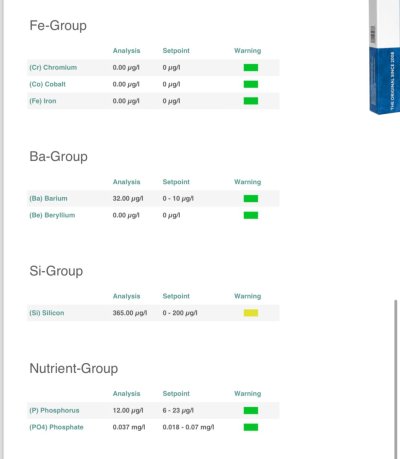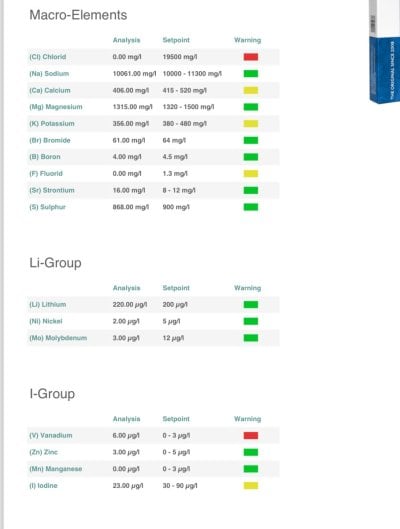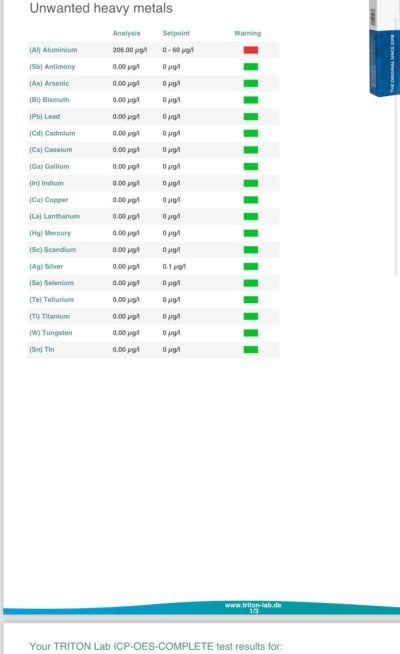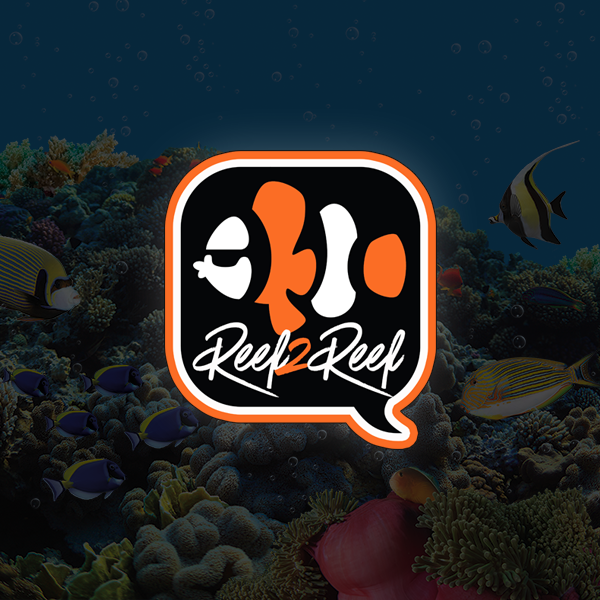Hello guys. I need a bit of guidance on what to do after an ICP test. The results show that the levels are low or zero for several elements and too high for a few.
Sulphur - 818mg/l (should be 850-950mg/l)
Lithium - 143ug/l (should be 160-200ug/l)
Iodine - 20ug/l (should be 50-80ug/l)
Nickel - 0
Vanadium -0
Cobalt -0
Chromium - 0
Molybdenum - 19 ug/l (should be 8-12 ug/l)
Iron - 5ug/l (should be 0.1-1ug/l)
Barium - 100 ug/l (should be 5-20ug/l)
They recommended a series of water changes to reduce the excess elements, but I'm wondering about how best to increase the low/missing elements. Is it better to dose them individually, or is a complete supplement like KZ Trace Element Complex a better way to go? I'm using ATI essentials at the moment. The reason I got the ICP is because I've lost all of my acans and favias since switching over to the essentials pro, and I figured something was off.
Thanks, Chris.
Sulphur - 818mg/l (should be 850-950mg/l)
Lithium - 143ug/l (should be 160-200ug/l)
Iodine - 20ug/l (should be 50-80ug/l)
Nickel - 0
Vanadium -0
Cobalt -0
Chromium - 0
Molybdenum - 19 ug/l (should be 8-12 ug/l)
Iron - 5ug/l (should be 0.1-1ug/l)
Barium - 100 ug/l (should be 5-20ug/l)
They recommended a series of water changes to reduce the excess elements, but I'm wondering about how best to increase the low/missing elements. Is it better to dose them individually, or is a complete supplement like KZ Trace Element Complex a better way to go? I'm using ATI essentials at the moment. The reason I got the ICP is because I've lost all of my acans and favias since switching over to the essentials pro, and I figured something was off.
Thanks, Chris.

























